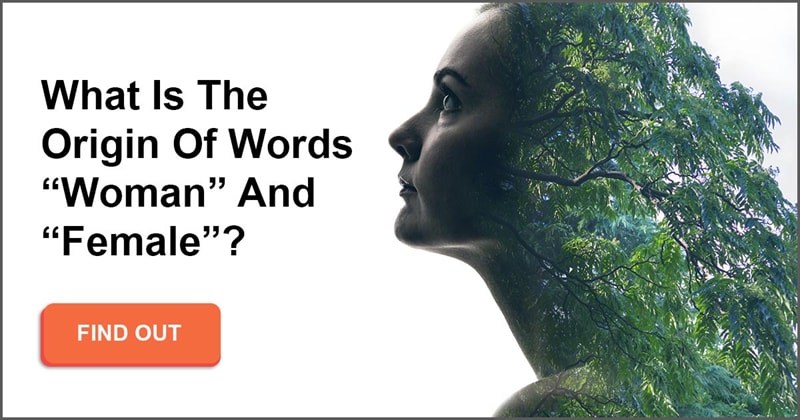Why does ‘woman’ contain ‘man’ and ‘female’ contain ‘male’?

“Goodbye” used to be “godbye” (from an abbreviation for “God be with ye”), but people thought it was a greeting like “good morning” or “good day”, so they changed it to “goodbye”, even though “bye” has no meaning of its own.
This sort of thing is fairly common: speakers will incorrectly assume a word’s origin, and will sometimes make adjustments to words to fit those assumptions. This phenomenon is called “folk etymology”.
Another example of this is “woman”. In Old English, wer(man) (related to Latin vir) meant “man” and wif(man) meant “woman”, and man meant something like “person”. Wer survives in “werewolf” (literally “man-wolf”) and wif in “wife”.
Wifmen lost its “f” and became wimman, then “woman”; werman lost the “wer” and became man. Man retained its definition as “person” until the 20th century, when people assumed that it excluded women - understandably, since many men were using it in that way - so it’s fallen out of use for the most part.
It has no connection to “womb-man”, either: in Old English, womb meant something more like “belly” or “abdomen”, so wombman, if it were a word, wouldn’t have had any obvious gender connections in Old English.
(“Human”, by the way, comes from the Latin humanus and has nothing to do with the word “man”.)
“Male” is from Latin masculus (“male”), which was then shortened to masle in Old French, and since French likes dropping S’s, became “male”. “Female” is also from French, but from femelle (“woman”), from the Latin diminutive of femina; it never had any etymological connection to “male”.
Sometimes the opposite can occur, where speakers fail to see a word’s origin and end up with etymological flotsam. “Cranberry” is an example of this: it comes from the Low German kraanbere, literally “crane-berry”. When English borrowed it, speakers correctly recognized that bere meant “berry”, but not that kraan meant “crane”, so they anglicized kraan to “cran” and ended up with “cranberry”, where “cran” doesn’t mean anything but is needed to make the word work.
Have you ever wondered why "female" and "woman" have such roots?
Interesting Facts
7 mind-blowing futuristic sculpture projects
6/13/2021
by
Della Moon
These incredible sculptures designed by a highly talented 3D artist, Chad Knight, are placed in real life locations. Let's take a look at what sculptures of the future would look like.
9 things that should be used to make our lives easier
8/15/2021
by
brian l
With these nine images, we would be showing things that should be used worldwide to make our lives better!
10 magnificent architectural edifices that got lost as the modern world developed
7/6/2021
by
brian l
Today we bring you glimpses of how the world was before modernization came around.
5 Latin phrases people think they understand
6/17/2021
by
brian l
Latin is considered a dead language but some expressions survived extinction. Here are 5 Latin phrases and their true meanings.
6 amazing countries where you can live better for cheaper
7/25/2021
by
Della Moon
There are many underrated countries with beautiful views and picturesque cities. Most of them are incredible cheap to live in. Let's learn about 6 such countries.












